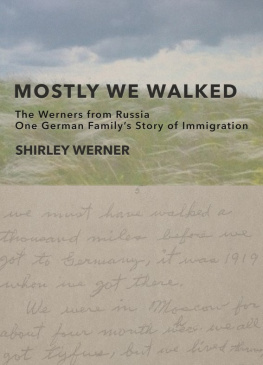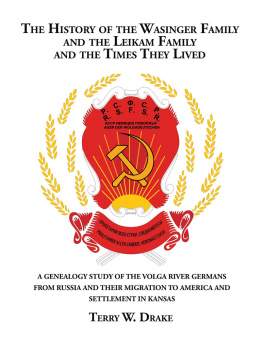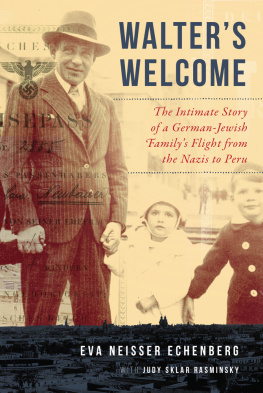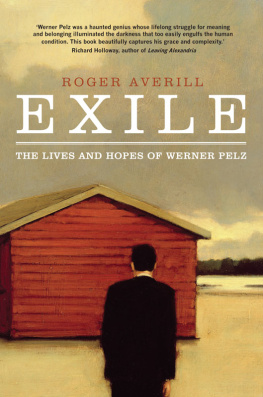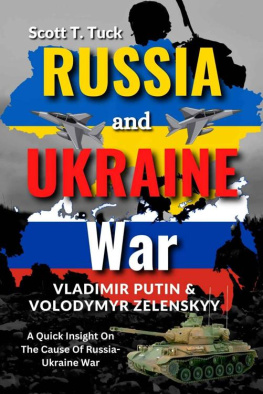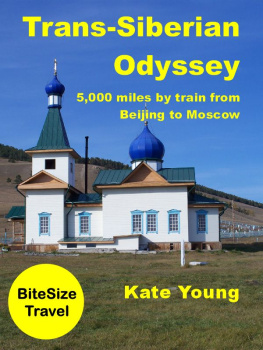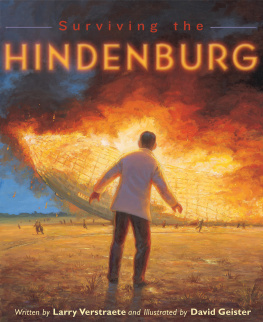Mostly We Walked: The Werners from Russia.
One German Family's Story of Immigration
Shirley Werner
Published by Shirley Werner at Smashwords
Copyright 2014 Shirley Werner
First published April 23, 2014
Last modified May 19, 2014
Smashwords Edition, License Notes
Thank you for downloading this e-book. This bookremains the copyrighted property of the author and may not beredistributed to others for commercial or noncommercial purposes.If you enjoyed this book, please encourage your friends to downloadtheir own copy. Thank you for your support.
Table of Contents
Mostly We Walked: The Werners from Russia. One GermanFamily's Story of Immigration
Legendary Family History
Ernst Oskar Werner, my fathers father, bornon December 5, 1907, is the man whose immigration story alwayscaptured our familys imaginationperhaps because it was the onlyimmigration story we knew in our family, which always assumed(wrongly, it turns out) that most of our other ancestors, both nearand distant, were obscure and unknowable. Details of his dramaticstory were told again and again around the Werner kitchen tableourfamilys gathering place, where all significant conversationsoccurredstories told almost always in the same way and with thesame particulars, until they became the family legend. I now knowthat some of these cherished details were the product of myfathers unintentional creation of his own memories. Everything herecounted to us he firmly believed to be true, but his memory,though it is the sharp memory of an honest, intelligent man, wassometimes based on his own unperceived embellishments,misinterpretations, or reconstruction of the facts that he tried topreserve in his mind.
Pop, as my father, Ernie, called himwechildren called him Pop Pop, since he was Daddys Popwas born intoa German-speaking family who lived in a village named BolshoyTokmak, north of the Black Sea in present-day Ukraine. The familyhad lived in the country they would always call Russia for morethan a generation, and they kept their German citizenship bysending their men back to fight in the wars. When World War I came,however, the family were sent as civil prisoners to Siberia. Theytraveled on cattle cars, and there was hunger: at one point, theywere allowed to get off the train, and some people ate grass andvomited. They lived in Siberia until German families were finallyallowed to leave. They made a large part of the long journey westout of Siberia on foot. In Moscow, there was a typhus epidemic, andthey all came down with the disease, yet all survived; Pop gottyphus after his family had mostly recovered, and since there was aquarantine it was forbidden for him to leave the city. But hisfamily hid him in a blanket (says my father) or a basket (as mychildish memory has it) and smuggled him out of Moscow. Theyjourneyed to the coastal city of Danzig, then a part ofGerman-speaking Prussia, now Gdansk in modern-day Poland. There,family lore says that they met an American man, C. F. Seabrook, orperhaps met someone who worked for him. Legend has it that Old ManSeabrook, as the workers at Seabrook Farms called himhiscolleagues called him C. F.offered them passage to the UnitedStates if they would work for a period of time on his farm in NewJersey. It was this promise that gave them the means to come to theUnited States, and this is how the family came to settle in thetown of Bridgeton in southern New Jersey. When they arrived atEllis Island after their voyage, my father loved to tell us, Popwas the only one of his brothers who did not yet have a middlename, and he was encouraged to choose one. He chose Oskar, whichsounded pleasant in German but comically disappointing whenpronounced in English. This particular memory about the middle nametickled my father because he always put it together with the factthat Pops brothers grew to be tall men, each of them almost sixfeet, and they all had impressive names to go with their impressiveheights: Wilhelm Siegfried, Adalbert Konstantine, and FranzVladimir. Pop, on the other hand, reached only five feet eightinches as an adult, and he had the shortest name to match:Ernst.
It cannot be proven, as a solid anddocumented fact, that Old Man Seabrook actually made this bargainwith my family. His son, John Seabrook (Jack), with whom I talkedwhen he was himself an old man, said that he did not know of hisfathers ever having gone to Europe to recruit workers in thatearly period, and the Ellis Island passenger records also seem totell a different (but itself probably false) story. It is certainlynot true that Pop was the only one of his brothers who waschristened without a middle name and that he chose one at EllisIsland. His baptismal certificate from Russia shows that he wasnamed Ernst Oscar Werner by his parents (Oscar with a c, althoughPop spelled it with a k when he recorded his German name in hishandwritten record of his familys history; in America, however, healways spelled Oscar with a c). And no middle names for the Wernerfamily were recorded on the S.S. Susquehannas manifest, whoseimage can now be viewed in the Ellis Island archivesso there isnothing to prove that middle names were a particular concern toanyone at that iconic moment in the familys passage.
What follows is an account constructed out offamily memories, put together with information from historicalarchives, books, photographs, maps [ Map:Russia ], interviews, and websitesplus one familyrecipe. There are probably legends that still linger undetected inthis account, masquerading as facts; and there may be itemsrecorded as fact in extant documents that are either deliberatefalsifications or innocent mistakes. In family history, I havelearned, what is cherished as a fact rarely turns out to beabsolutely stable.
The GermanOrigins of the First Generation
Martin Goertz (1847before 1915) and MariaLink (1847before 1915) were the parents of Anna Goertz (Grtz)Werner, Pops mother [ Document:Martin and Maria ]. Both were born in Marienburg, EastPrussia, now Malbork, Poland. On the maps, Marienburg can be seensituated about halfway between Danzig and Elbing [ Map:Marienburg , 2 images]; it was considered to be withinthe greater Danzig region, and so Pops statement that the Goertzeswere married in Danzig may have been a more general way of sayingthat they were married in Marienburg. An old image shows thefortress in Marienburg, built in 1274 [ MarienburgFortress ].
Despite his military service, Martin foundliving conditions difficult in East Prussia after the war. He andMaria Link Goertz therefore emigrated from Marienburg to Orenburg,Russia, in 1871 after their marriage. Michael Link, her mothersfather, originally of Marienburg, also later moved to Orenburgafter his son Martin and another son, Fritz Link, who was doing abutcher business, had moved there [ Document:Michael Link ]. Thus a part of the familyMaria and herhusband, and her brothers and father, presumably with theirwivesmoved to Orenburg in several stages.
].
There is good reason to suppose that Martinand Maria Goertz eventually moved away from the eastern outpost ofOrenburg west to the Black Sea area of Ukraine, because they laterbecame acquainted with the Werners. Whether the Links stayed inOrenburg or moved with them is not known.
Ludwig Gustav Werner (ca. 1845before 1915)and Caroline Klink were the parents of Adolph Gustav Werner, Popsfather [ Document:Adolph Gustav Werner , 2 images]. We know only a fewfacts about Ludwig: where he was born, that he came to Russia whenhe was fourteen, the names of his children and wife, that he madefurniture, and where he died. But these bare facts reveal more thanwe might at first think. They not only allow us to understandsomething of the structure of his life, but shed light onand arein turn illuminated bythe historical circumstances that broughthim to Russia.
] shows that the city is situated between thebodies of water identified as the Frische Haff and the KurischeHaff (in the center of the map; the coastal city of Danzig would bejust off the map to the left).
Next page
